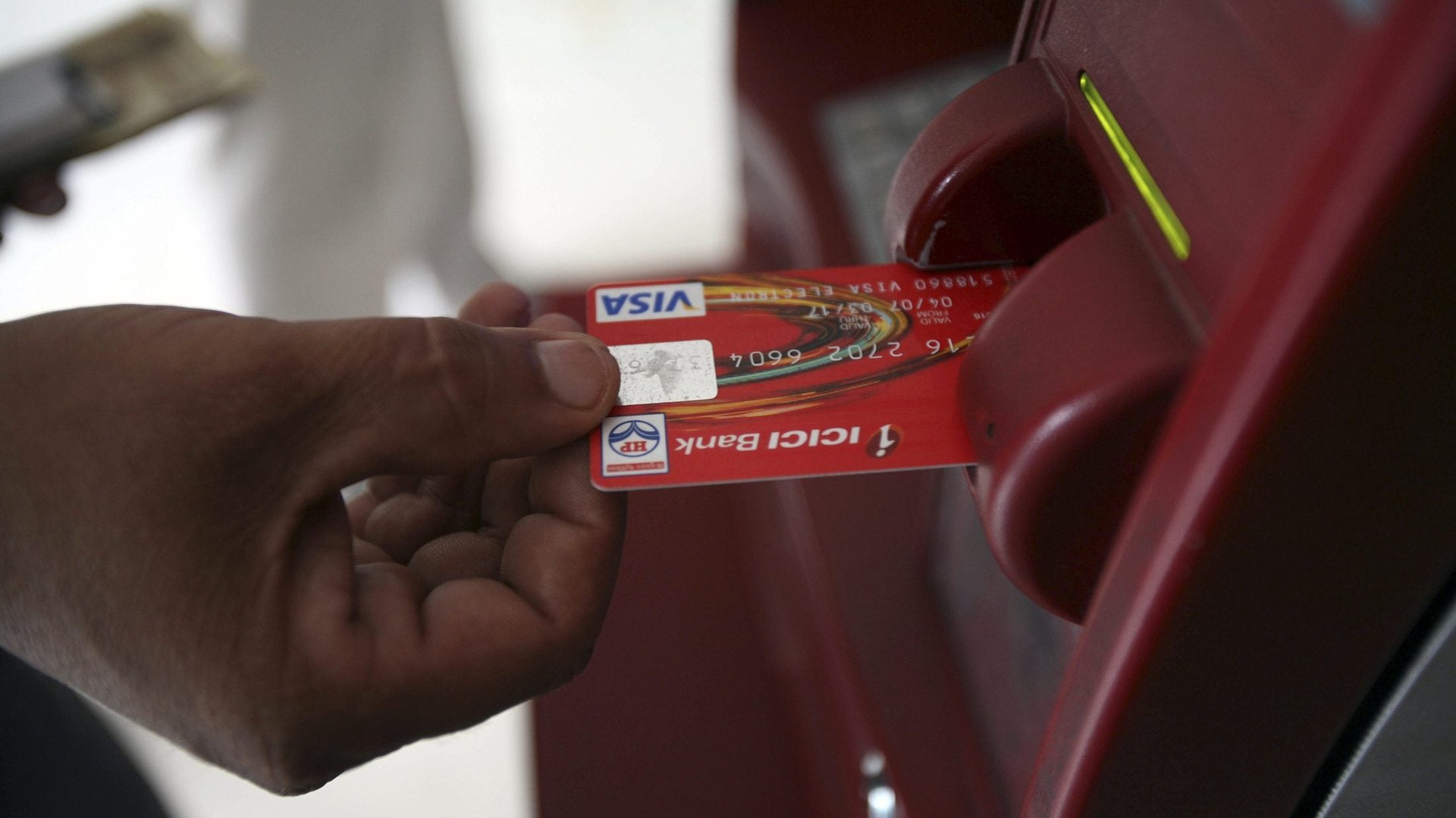Indian banks’ bet on retail loans may have misfired due to coronavirus pandemic
India’s banks are bracing for a new wave of loan defaults, this time from retail customers.


India’s banks are bracing for a new wave of loan defaults, this time from retail customers.
With the Covid-19 pandemic bringing the economy to a halt, defaults by borrowers, especially embattled small businesses and individuals whose wages have eroded, are now imminent, say analysts.
“Small retail and loans to MSMEs (micro, small, and medium enterprises) will see sharp deterioration. Even before Covid-19, unemployment was increasing in India. Now, the situation has worsened. Many households will face a cash crunch,” Pankaj Pathak, fund manager for fixed income at Mumbai-based Quantum Mutual Fund, told Quartz.
This is unlike in the past when retail loans—personal loans, credit card debt, consumer durable loans, vehicle loans, or loans to small businesses with a ticket size usually below Rs10 crore ($130,000)—were considered safe assets by banks compared to corporate loans.
The Covid-19 pandemic, thus, could bring an abrupt end to the industry’s reliance on retail loans, said a Kotak Institutional Equities report, on March 30. The Reserve Bank of India’s data show that as of September 2019, this segment accounted for 26% of Indian lenders’ overall credit of Rs95 lakh crore.
The central bank, too, was quick to see the writing on the wall. On March 27, it announced a three-month moratorium on all term loans and credit card debt to avoid defaults. However, once the moratorium ends, retail loans are expected to go bust, according to bankers.
This can have a cascading effect on banks’ finances due to their recent focus on the retail segment.
Bets misfire
Since financial year 2016, almost all major banks have relied on retail loans to expand their loan books. This constituted the fastest growing loan segment, clocking 18% between September 2018 and September 2019.
A substantial portion of it is unsecured credit (personal loans, consumer durable loans, and credit card dues).
Credit to small businesses, too, is significant. For instance, public sector lender City Union Bank’s share of SME loans in the overall loan book stood at around 50% in December 2019 and has remained close to that mark for the past five years.
By the end of 2019, RBI was highlighting the dangers of over-reliance on retail: “The diversification strategy, while helpful as a risk mitigation tool, has its own limitations: the slowdown in consumption and overall economic growth may affect the demand for, and the quality of, retail loans.”
Moreover, in the case of unsecured loans, there is no collateral to seize in the event of a default.
“A lender won’t be interested in seizing an asset like a mobile or laptop if the borrower defaults,” explained Pathak of Quantum Mutual Fund.
Adding to banks’ woes is the precarious situation of small businesses since demonetisation and the default of infrastructure lender IL&FS last year. Covid-19 could be the last straw.
“Self-employed or MSME loans such as those given to restaurant owners are riskier compared to others as they don’t have any stream of revenue due to the lockdown right now,” said Abhinesh Vijayaraj, vice-president of equity research at Chennai-based financial advisor Spark Capital.
Tough times
The slowdown in these pockets is sure to impact banks’ bottom lines as interest charged on retail loans is higher. For instance, a credit card holder pays 36% compound interest annually, which is higher than the interest levied on corporate loans.
“We are more concerned about the unsecured retail, consumer (durable), and SME (loans) at this point as their contribution to (banks’) earnings is high and it would have an impact on net interest margin, fees, and cost ratios (of the banks) as well as on provisions,” states the Kotak Institutional Equities report.
On March 19, a week before the central government announced a nationwide lockdown, US-based research & brokerage firm Bernstein downgraded HDFC Bank, citing its high exposure to unsecured consumer credit.
“The stress will be across the board for banks. We are entering into painful times for the financial system. Government support will be needed to overcome such times,” says Pathak.